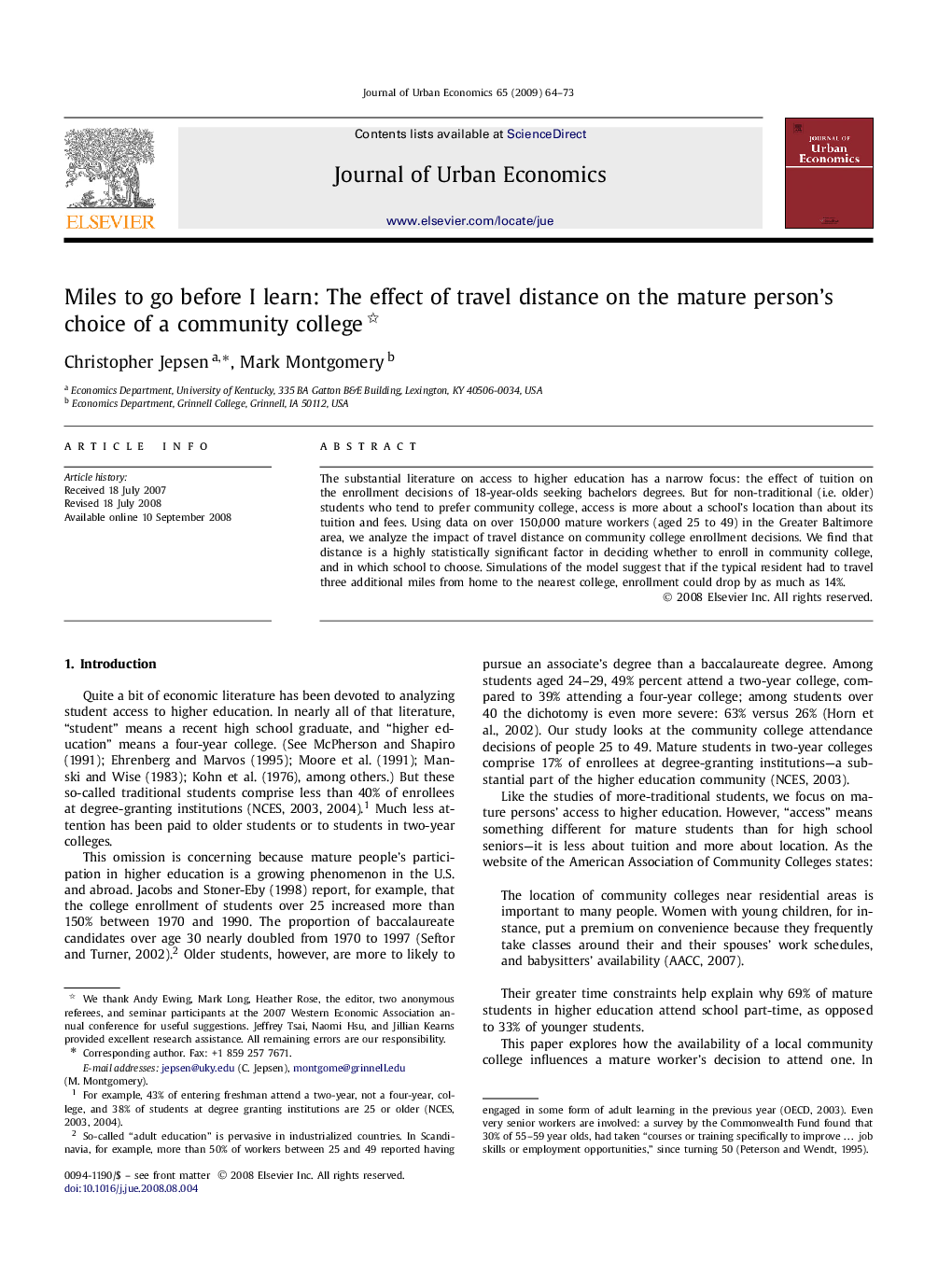| Article ID | Journal | Published Year | Pages | File Type |
|---|---|---|---|---|
| 971970 | Journal of Urban Economics | 2009 | 10 Pages |
The substantial literature on access to higher education has a narrow focus: the effect of tuition on the enrollment decisions of 18-year-olds seeking bachelors degrees. But for non-traditional (i.e. older) students who tend to prefer community college, access is more about a school's location than about its tuition and fees. Using data on over 150,000 mature workers (aged 25 to 49) in the Greater Baltimore area, we analyze the impact of travel distance on community college enrollment decisions. We find that distance is a highly statistically significant factor in deciding whether to enroll in community college, and in which school to choose. Simulations of the model suggest that if the typical resident had to travel three additional miles from home to the nearest college, enrollment could drop by as much as 14%.
